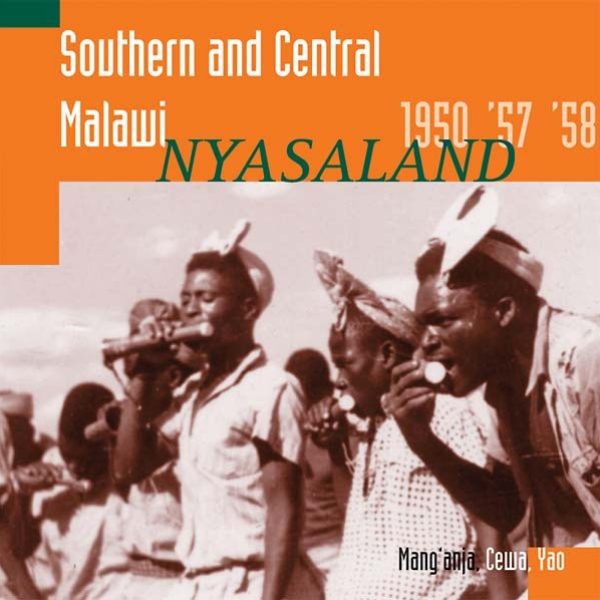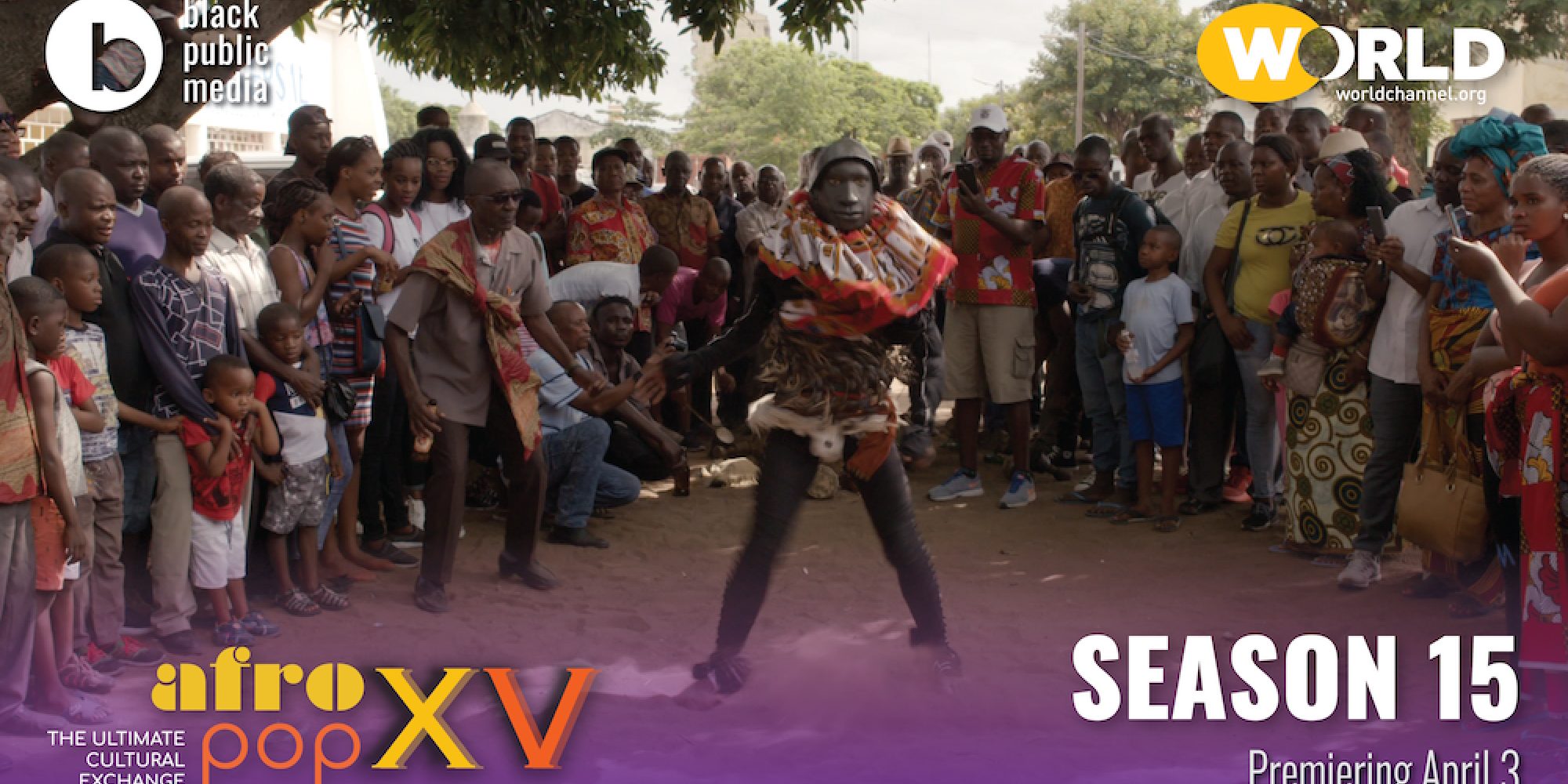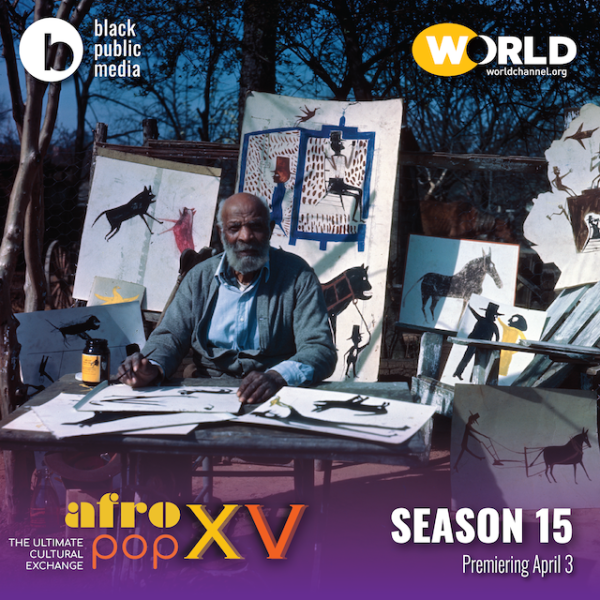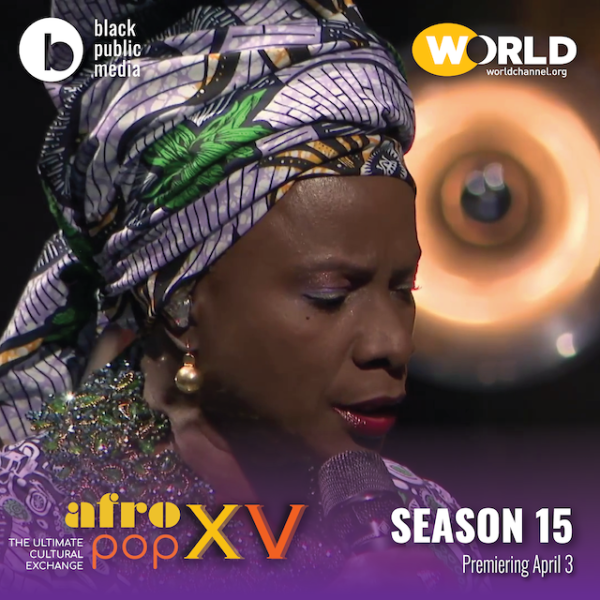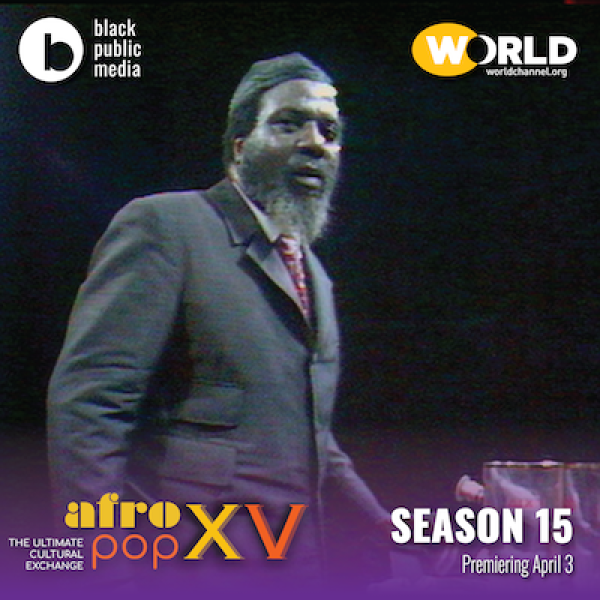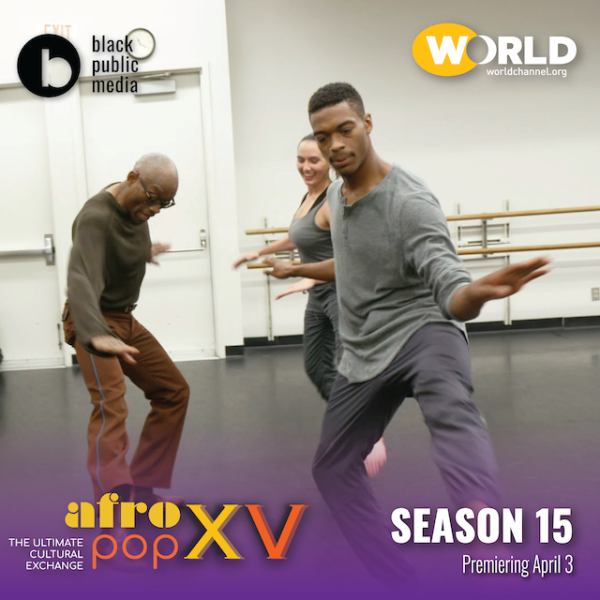The 15th season of AfroPoP: The Ultimate Cultural Exchange, the documentary series of vibrant stories from across the African diaspora from Black Public Media and WGBH’s WORLD Channel, just ended and I thought it appropriate to spotlight one film in the series that resonates deeply: The Sound of Masks, an award-winning film directed by Sara CF de Gouveia, a Portuguese filmmaker living in South Africa.
The Sound of Masks film transports viewers to Mozambique between the days right after its independence from Portugal, when it became the scene of a brutal proxy war between Cuba, Russia and South Africa aided by the U.S. government. This was a war fought between Mozambique's ruling Marxist Mozambique Liberation Front (FRELIMO), the anti-communist insurgent forces of the Mozambican National Resistance (RENAMO), and a number of smaller factions such as the PRM, Mozambican National Union UNAMO, Mozambique Revolutionary Committee COREMO, Union of the Peoples of Mozambique UNIPOMO and Mozambique Democratic United Front FUMO between 1977 to 1992. The film traces this violent tension through the media of dance and music. This non-traditional narrative follows a uniquely gifted dancer and storyteller called Atanasio Nyusi, working in the present day to connect with the next generation and to keep alive the custom of mapiko, a sacred ritual masked dance performed by men of the Makonde people of Northern Mozambique.
Mapiko is part of a tradition and metaphysical world view that delves into African consciousness through mise-en-scène, objects, framing, light, space, costume, and characters, all presented in outdoor settings. We enter a symbolic world of drum memory and syncopated words of power, trance and spirit guardians who embrace and meet to transmit Makonde values. The role of the masked dancer is to pass on messages and life scenarios to initiates during rites of passage rituals and sacred ceremonies. But the performances take place in a profane world, attracting crowds to an event full of messages for the community. This traditional knowledge system is prevalent all over Sub-Saharan Africa and has been erroneously classified as masked art, dance and music when in fact it is wholistic and a complete knowledge system called orature, as coined by Kenyan author Ngugi wa Thiongó. Similar oral traditions can be found in Malawi and Zambia and Zimbabwe and called nyau in my native Barotseland and makishi in Angola. I documented the performance practice over a 20-year period and was able to understand it from the context of our own pre-colonial narratives.
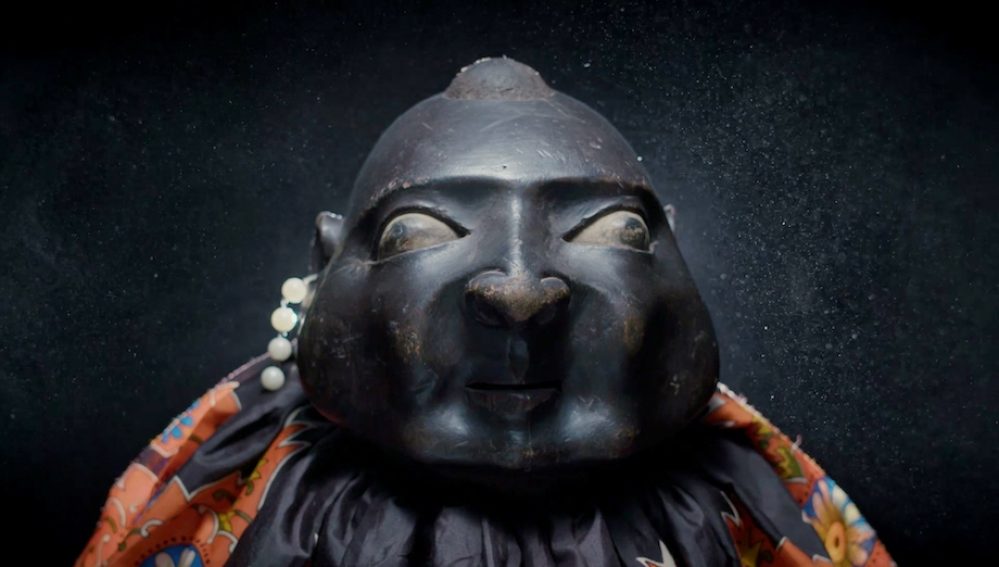
Back to the narrative, the main subject is a legend himself, Atanásio Cosme Nyusi, who tells the history of how Mapiko was used as a tool to combat oppression during colonization. He displays unease at times finding the right words to express this secret dance tradition and his concerns about its future as fewer younger people—an exception being his own son--have taken up the tradition. A visually exciting and slow-moving documentary, The Sound of Masks requires patience but is without a doubt a loving memory to a master, as Nyusi passed away in 2022 taking with him any questions we have left to ask him. Mapiko became a tool for challenging “colonization.” The colonial Portuguese government banned the tradition. Director de Gouveia treads lightly on this history, and of course, the civil war had its own role to play in driving the practice underground, as ongoing civil war does to this day. The hope is for the dance to be revived by the owners of the cultural property, but for now, this film is our introduction.
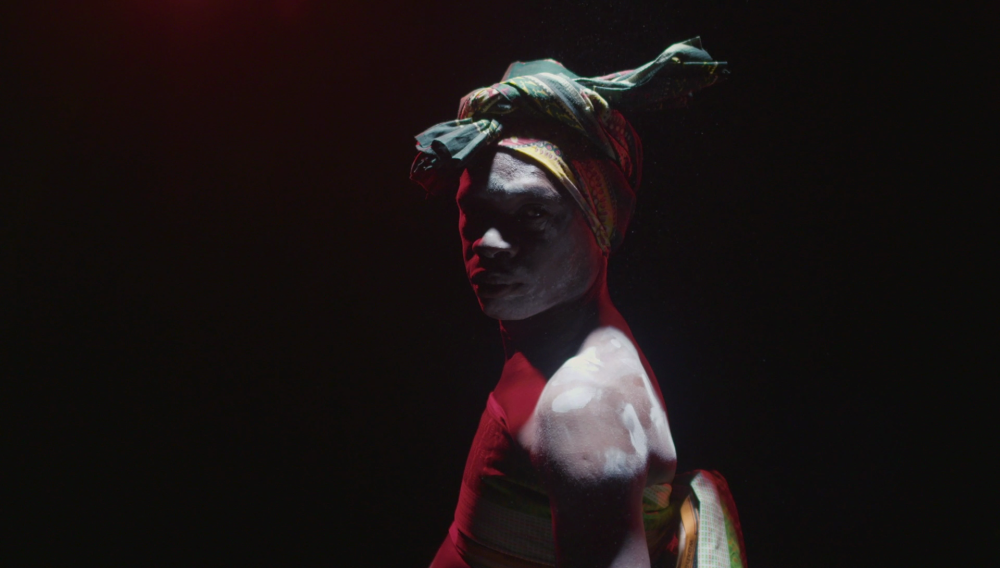
The Sound of Masks presents an arresting aesthetic, but you might be disappointed if you are expecting a straight documentary about tradition and history in Mozambique. The film distributors would have been wiser to not dub all the main characters into Portuguese, but keep the lyrical cadence and musical Kimakonde language or lingua franca Mahkuwa, as another portal to hear the dance. This would change the experience of the film and remedy any traces of a colonial gaze. The interlacing of the history of colonization, oppression, civil war and resistance in Mozambique juxtaposed with the modern dance interpretation of the journey of the master dancer is striking, and the montage editing allows the story to pass through time and space with ease from present to past and back again, swiftly informing young Mozambicans through archival footage of the country’s past of struggle. The film conveys the “magic” of the spiritual dance genre non-verbally through the staged lighting and fast-paced cinematography that sometimes verges on fetishizing the content.
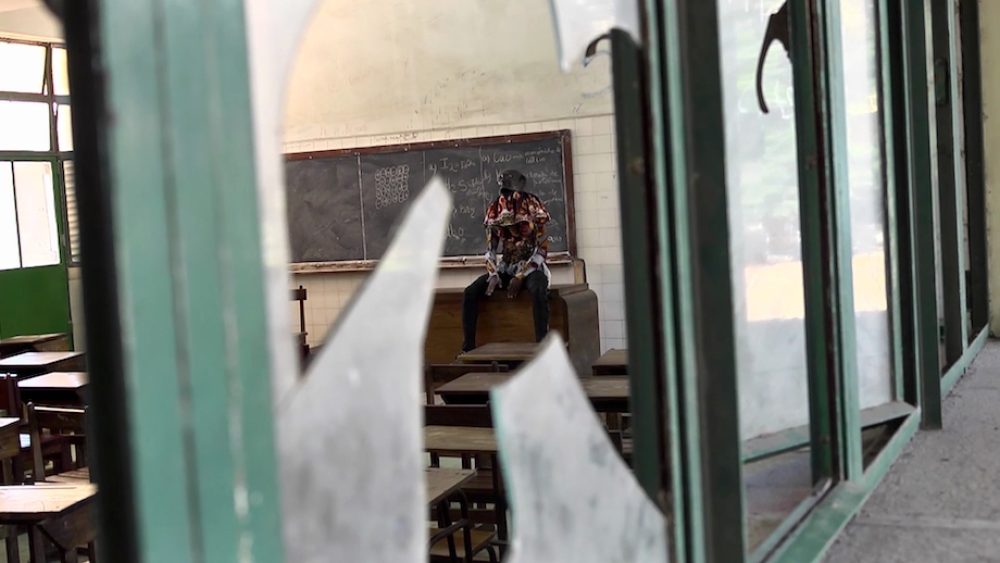
Tiago Correia-Paulo’s music and soundscape for The Sound of Masks are compelling enough to hold the whole film together. His own hybrid biography is an integral part of the story, one yet to be fully told.
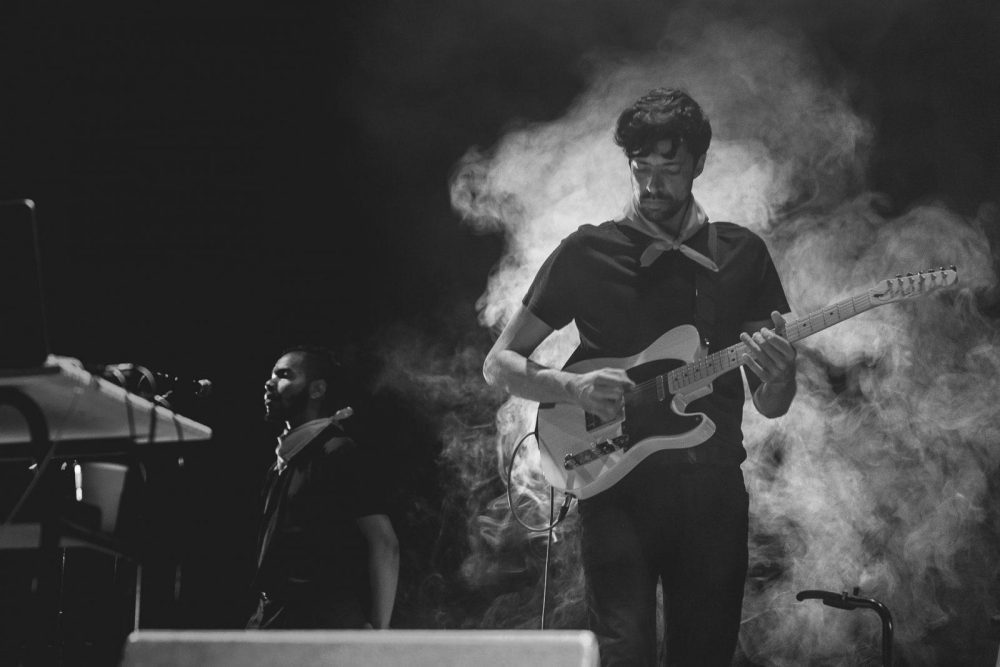
Pre-colonial history of Mozambique began before Mwene Mutapa, Muana Mulena, Muene Mutapa or Monomotapa, the praise name given to a line of kings ruling an African territory between the Zambezi and Limpopo rivers, in what is now South Africa, Barotseland Zimbabwe and Mozambique, from the 14th to the 17th century. Their sphere of influence was often called the empire of the Mwene Matapa, or simply Matapa (or the empire of Muana Matapa (Monomatapa). From 1498 when Vasco da Gama arrived on the Indian Ocean coastline of Mozambique a colony and settlement was established by 1505, governed from Goa in what today is a state in southern India. This lasted until 1752 when the country came under direct control from Lisbon, Portugal. As a result of this link with India, numerous Indian trading communities settled in the country, and their influence can still be seen today. Independent Arab trading “states” survived until the end of the 19th century. Mozambique was thus an occupied territory for 477 years, making this the second longest colonial history after Puerto Rico, surpassing even Brazil, South Africa and the United States. To this day, even after Independence, ordinary Black Mozambicans still struggle with self-determination within a very segregated society. Tiago has been doing his share of bridging the gap and working on extraordinary documentaries and conceptual art including the film project Maputo: Ethnography of a Divided City.
His exceptional editing and composition on the short film Moshanyana by Rui Teneiro is worth noting.
At Afropop, we explore all African and diasporic culture with roots in pre-history, the ever-present past. Look out for the work of Tiago Correia-Paulo, a young, gifted composer and producer who is set to put his mark on the film and music industries of Africa for future generations to enjoy.
You can hear his music in the film The Sound of Masks curated by AfroPoP: Ultimate Cultural Exchange and streaming for free on worldchannel.org, the WORLD YouTube Channel, the Black Public Media YouTube Channel and on PBS.org and the PBS app.


Related Audio Programs
